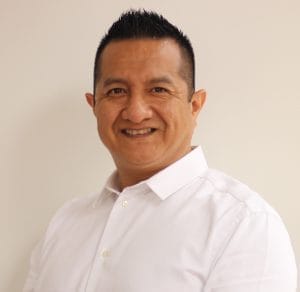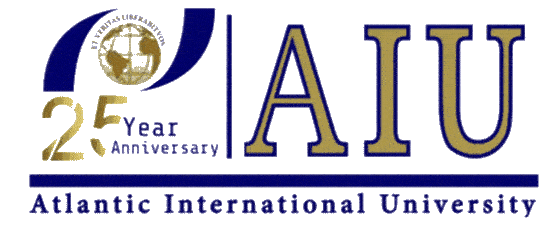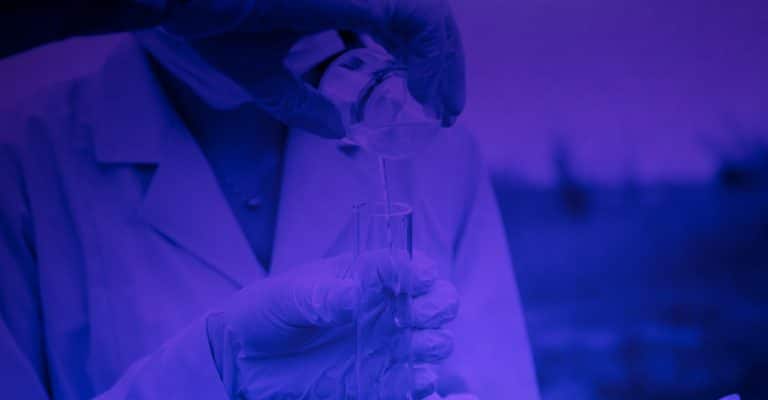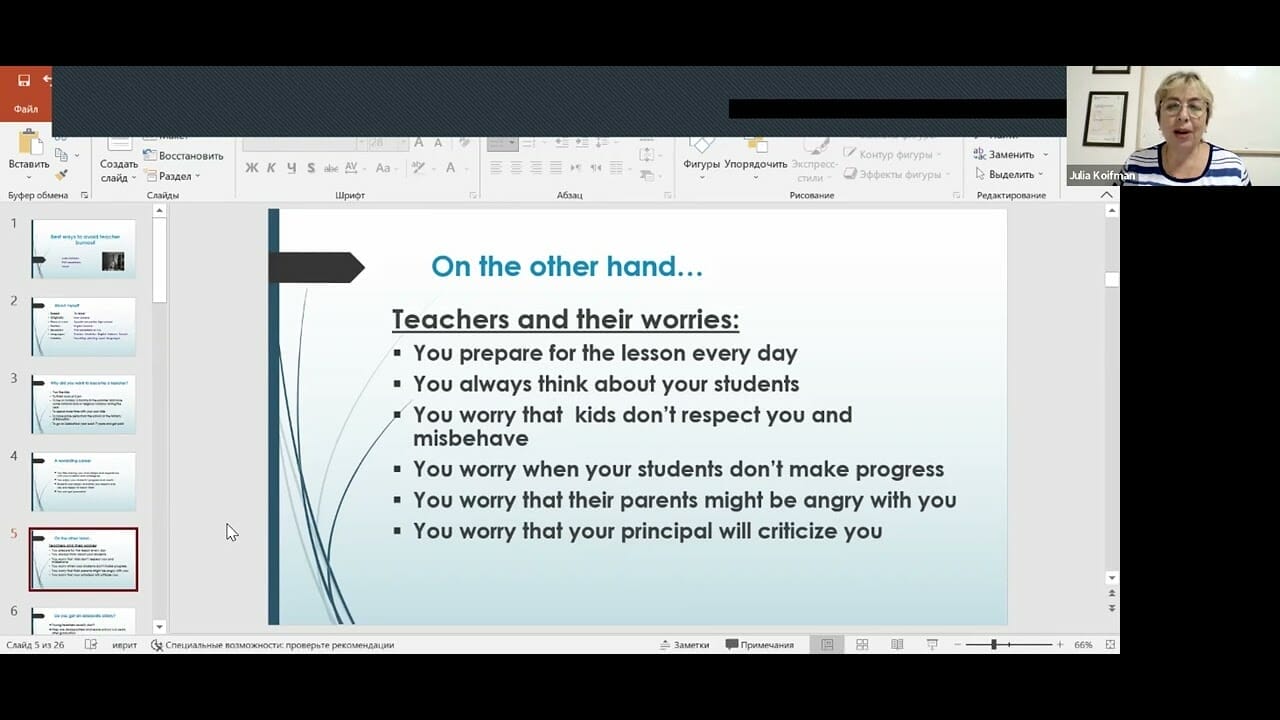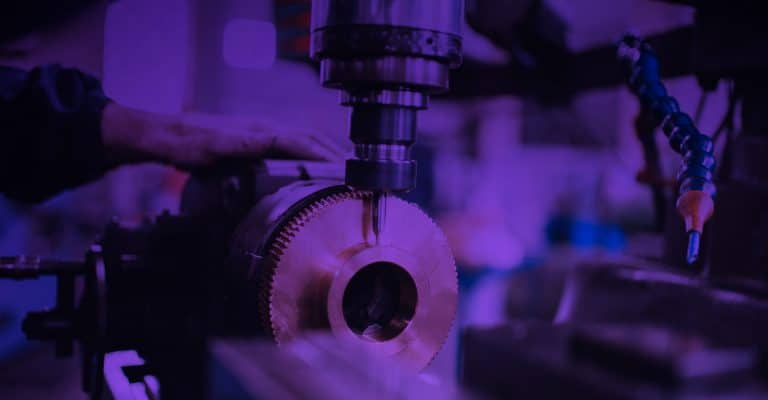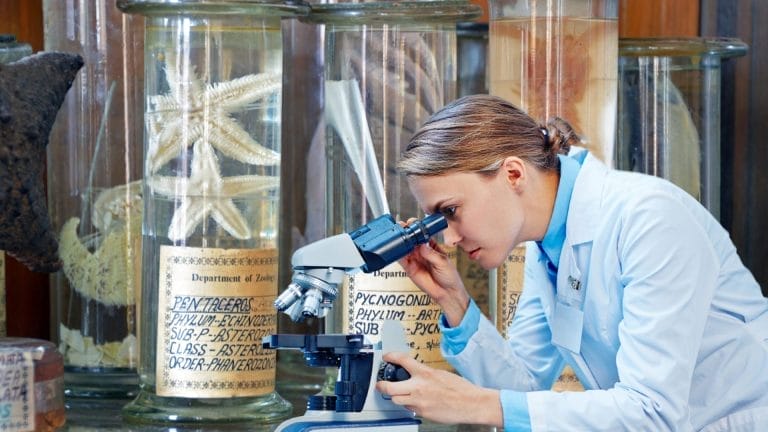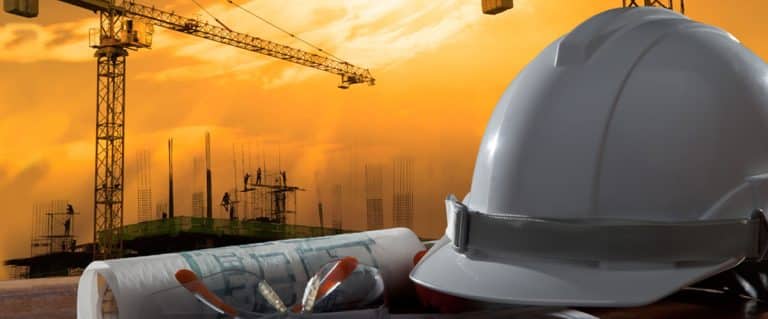- RESEARCHDistance Learning at AIU is enhanced by vast academic resources and innovative technologies build into the Virtual Campus: Hundreds of self-paced courses with video lectures and step by step lessons, thousands of optional assignments, 140,000 e-books, the Social Media & Networking platform allowing collaboration/chat/communications between students, and MYAIU develop students holistically in 11 areas beyond just academics.
- PROGRAMS OFFERED
- Areas of Study
- Courses and Curriculum
- Open Courses
- Register for a Program
- Certificate Program
-
Associate program
- Associate in Actuarial Science
- Associate in Addiction Counseling
- Associate in Agriculture Food And Resources
- Associate in Animal Science
- Associate in Anti Terrorism Security
- Associate in Behavior Analysis In Special Education
- Associate in Bioethics
- Associate in Biosystems
- Associate in Blockchain Technology & Digital Currency
- Associate in Business Communication
- Associate in Business Management
- Associate in Chemistry
- Associate in Climatology
- Associate in Cloud Computing
- Associate in Computer Engineering
- Associate in Computer Programming
- Associate in Computer Science
- Associate in Criminal Justice
- Associate in Culinary Arts
- Associate in Cultural Theological Communication
- Associate in Cybersecurity And Hacking
- Associate in Data Communication And Networking
- Associate in Database Administrator
- Associate in Early Childhood Education
- Associate in Ecotechnology
- Associate in Ecotourism
- Associate in Education
- Associate in Educational Technology
- Associate in Electric Vehicle Engineering
- Associate in Electrochemical Engineering
- Associate in Electronic Engineering
- Associate in English Literature
- Associate in Environmental Science
- Associate in eVTOL Engineering
- Associate in Fashion Design
- Associate in Fine Arts
- Associate in Foreign Trade
- Associate in Genetic Engineering
- Associate in Geography
- Associate in Geology
- Associate in Geophysical Sciences
- Associate in Graphic Design
- Associate in Health Sciences
- Associate in History
- Associate in Human Resources
- Associate in Integrated Water Management
- Associate in International Finance
- Associate in International Marketing
- Associate in Islamic Studies
- Associate in Kinesiology And Physiotherapy
- Associate in Library technology
- Associate in Linguistics
- Associate in Management
- Associate in Management Information Systems
- Associate in Maritime Management
- Associate in Metallurgy
- Associate in Micro and Multimode Grid Design
- Associate in Modern Power and Energy Systems
- Associate in Multimedia Design and Digital Art
- Associate in Nutrition
- Associate in Oil Gas And Energy Engineering
- Associate in Operations Management
- Associate in Optoelectronic Systems
- Associate in Organizational Development
- Associate in Organizational Diversity
- Associate in Pedagogical Training For Professionals
- Associate in Physical Culture And Sports
- Associate in Physics
- Associate in Public Health
- Associate in Quantum Computing Technology
- Associate in Radio And Television Production
- Associate in Scenography
- Associate in Social Media Marketing
- Associate in Sociology
- Associate in Sports Marketing
- Associate in Sports Psychology
- Associate in Sustainable Design and Construction
- Associate in Sustainable Materials Science
- Associate in Sustainable Natural Resources Management
- Associate in Sustainable Tourism
- Associate in Synthetic Biology
- Associate in Virtual Archival Science
- Associate of Adult Education
- Associate of Advertising
- Associate of Agriculture
- Associate of American History
- Associate of Biology
- Associate of Chemical Engineering
- Associate of Civil Engineering
- Associate of Communications
- Associate of Construction Management
- Associate of Economics
- Associate of Educational Administration
- Associate of Electrical Engineering
- Associate of Finance
- Associate of Healthcare Administration
- Associate of Human Resources Management
- Associate of Humanities
- Associate of Hydrology
- Associate of Industrial Engineering
- Associate of Information Systems
- Associate of Information Technology
- Associate of Interior Design
- Associate of International Relations
- Associate of Journalism
- Associate of Legal Studies
- Associate of Logistics
- Associate of Marketing
- Associate of Mass Media and Communication
- Associate of Mathematics
- Associate of Mechanical Engineering
- Associate of Mining Engineering
- Associate of Music
- Associate of Nutrition Science
- Associate of Philosophy
- Associate of Physical Education
- Associate of Political Science
- Associate of Project Management
- Associate of Psychology
- Associate of Renewable Energy
- Associate of Software Engineering
- Associate of Sport Science
- Associate of Statistics
- Associate of Strategic Management
- Associate of Technical Writing
- Associate of Telecommunications
- Associate of Theater
- Associate of Theology
- Associate of Tourism Planning and Development
- Associate of Travel and Tourism
- Associate of Unmanned Areal Systems Engineering
- Associates in Artificial Intelligence
- Associates in Engineering Systems
- Associates in Physical Anthropology
- Associates in Social Sciences
- Associates in Sociocultural Anthropology
- Associates in Systems Engineering
- Associates of Accounting
- Associates of Anthropology
- Associates of Archeology
- Associates of Architecture
- Associates of Art History
- Associates of Banking and Finance
- Associates of Business Administration
- Associates of Public Administration
- Associates of Science
- Associates of Urban Planning
- Associates of Visual and Performing Arts
- Micro and Multimode Grid Design
-
Bachelor Program
- Bachelor in Data Communication and Networking
- Bachelor in Actuarial Science
- Bachelor in Addiction Counseling
- Bachelor in Agriculture, Food and Resources
- Bachelor in Animal Science
- Bachelor in Anthropology
- Bachelor in Anti Terrorism Security
- Bachelor in Artificial Intelligence
- Bachelor in Arts in Cultural Theological Communication
- Bachelor in Autonomous Vehicle Technology
- Bachelor in Bachelor of Bioethics (BA)
- Bachelor in Behavior Analysis in Special Education
- Bachelor in Bibliotechnology
- Bachelor in Biosystems
- Bachelor in Blockchain Technology & Digital Currency
- Bachelor in Business Communication
- Bachelor in Business Management
- Bachelor in Chemistry
- Bachelor in Cloud Computing
- Bachelor in Computer Science
- Bachelor in Criminal Justice
- Bachelor in Culinary Arts
- Bachelor in Cybersecurity and Hacking
- Bachelor in Database Administrator (BS)
- Bachelor in Ecotechnology
- Bachelor in Ecotourism
- Bachelor in Education (B.Ed, BS)
- Bachelor in Educational Technology
- Bachelor in Electric Vehicle Engineering
- Bachelor in Electrochemical Engineering
- Bachelor in English Literature
- Bachelor in eVTOL Engineering
- Bachelor in Fashion Design (BA)
- Bachelor in Fine Arts
- Bachelor in Foreign Trade
- Bachelor in Genetic Engineering
- Bachelor in Geology
- Bachelor in Geophysical Sciences
- Bachelor in Graphic Design
- Bachelor in Health Sciences
- Bachelor in Integrated Water Management
- Bachelor in International Finance
- Bachelor in International Marketing
- Bachelor in Islamic Studies
- Bachelor in Kinesiology and Physiotherapy
- Bachelor in Linguistics
- Bachelor in Management
- Bachelor in Metallurgy
- Bachelor in Micro and Multimode Grid Design
- Bachelor in Modern Power and Energy Systems
- Bachelor in Multimedia Design and Digital Art
- Bachelor in Nutrigenetics
- Bachelor in Operations Management (BA)
- Bachelor in Optoelectronic Systems
- Bachelor in Organizational Development
- Bachelor in Organizational Diversity
- Bachelor in Pedagogical Training for Professionals
- Bachelor in Physical Anthropology
- Bachelor in Physical Culture And Sports
- Bachelor in Public Relations
- Bachelor in Quantum Computing Technology
- Bachelor in Radio And Television Production
- Bachelor in Scenography
- Bachelor in Social Media Marketing
- Bachelor in Social Sciences
- Bachelor in Sociocultural Anthropology
- Bachelor in Sport Management
- Bachelor in Sports Marketing
- Bachelor in Sports Psychology
- Bachelor in Sustainable Design and Construction
- Bachelor in Sustainable Materials Science
- Bachelor in Sustainable Natural Resources Management
- Bachelor in Sustainable Tourism
- Bachelor in Synthetic Biology
- Bachelor in Virtual Archival Science
- Bachelor of Adult Education
- Bachelor of Advertising
- Bachelor of Animation
- Bachelor of Art History
- Bachelor of Biohacking and Nutrigenomics
- Bachelor of Educational Administration
- Bachelor of Healthcare Administration
- Bachelor of Human Resources Management
- Bachelor of Humanities
- Bachelor of Hydrology
- Bachelor of Information Technology
- Bachelor of Journalism
- Bachelor of Mass Media and Communication
- Bachelor of Mathematics
- Bachelor of Philosophy
- Bachelor of Physical Education
- Bachelor of Project Management
- Bachelor of Public Administration
- Bachelor of Software Engineering
- Bachelor of Sport Science
- Bachelor of Sports Science
- Bachelor of Statistics
- Bachelor of Strategic Management
- Bachelor of Technical Writing
- Bachelor of Theater
- Bachelor of Theology
- Bachelor of Tourism Planning and Development
- Bachelor of Travel and Tourism
- Bachelor of Unmanned Areal Systems Engineering
- Bachelor of Urban Planning
- Bachelor of Visual and Performing Arts
- Bachelor of Web Design
- Bachelors in Energy Storage and Battery Technology
- Bachelors in Accounting
- Bachelors in Accounting & Finance
- Bachelors in Agronomy Engineering
- Bachelors in Architecture
- Bachelors in Automotive Engineering
- Bachelors in Banking and Finance
- Bachelors in Biology
- Bachelors in Business Administration
- Bachelors in Chemical Engineering
- Bachelors in Civil Engineering
- Bachelors in Communications
- Bachelors in Computer Engineering
- Bachelors in Criminal Justice
- Bachelors in Early Childhood Education
- Bachelors in Economics
- Bachelors in Electrical Engineering
- Bachelors in Electronic Engineering
- Bachelors in Engineering
- Bachelors in Environmental Science
- Bachelors in Finance
- Bachelors in Finance and Banking
- Bachelors in History
- Bachelors in Hospitality Management
- Bachelors in Human Resources
- Bachelors in Industrial Engineering
- Bachelors in Information Systems
- Bachelors in Interior Design
- Bachelors in International Business
- Bachelors in International Relations
- Bachelors in Legal Studies
- Bachelors in Logistics
- Bachelors in Marketing
- Bachelors in Mechanical Engineering
- Bachelors in Mining Engineering
- Bachelors in Music
- Bachelors in Nutrition
- Bachelors in Oil Gas and Energy Engineering
- Bachelors in Physics
- Bachelors in Political Science
- Bachelors in Psychology
- Bachelors in Public Health
- Bachelors in Renewable Energy
- Bachelors in Sociology
- Bachelors in Systems Engineering
- Bachelors in Telecommunications
- Bachelors in Zoology
-
Doctorate Program
- DBA – Doctor of Business Administration
- Doctor | in Actuarial Science
- Doctor | in Agriculture Food And Resources
- Doctor | in Animal Science
- Doctor | in Biosystems
- Doctor | in Cultural Theological Communication
- Doctor | in Cybersecurity And Hacking
- Doctor | in Early Childhood Education
- Doctor | in Ecotechnology
- Doctor | In Ecotourism
- Doctor | In Educational Technology
- Doctor | In Electronic Engineering
- Doctor | In Foreign Trade
- Doctor | of Biology (PhD)
- Doctor in Addiction Counseling
- Doctor in Behavior Analysis In Special Education
- Doctor in Bibliotechnology
- Doctor in Business Management
- Doctor in Data Communication And Networking
- Doctor of Adult Education
- Doctor of Agriculture
- Doctor of American History
- Doctor of Animation
- Doctor of Anthropology
- Doctor of Archaeology
- Doctor of Architecture (Ph.D.)
- Doctor of Art History
- Doctor of Artificial Intelligence
- Doctor of Autonomous Vehicle Technology
- Doctor of Biohacking and Nutrigenomics
- Doctor of Business Management (DBM)
- Doctor of Civil Engineering (D.Sc)
- Doctor of Cloud Computing
- Doctor of Economics (PhD)
- Doctor of Educational Administration (PhD)
- Doctor of Electric Vehicle Engineering
- Doctor of Electrical Engineering (D.Sc, PhD)
- Doctor of Electrochemical Engineering
- Doctor of Engineering Systems (D.Sc)
- Doctor of eVTOL Engineering
- Doctor of Finance (PhD)
- Doctor of Humanities
- Doctor of Hydrology
- Doctor of Industrial Engineering (D.Sc)
- Doctor of International Relations (D.Sc)
- Doctor of Legal Studies (PhD)
- Doctor of Logistics
- Doctor of Mass Media and Communication
- Doctor of Mechanical Engineering (D.Sc)
- Doctor of Micro and Multimode Grid Design
- Doctor of Mining Engineering
- Doctor of Music
- Doctor of Nutrition Science
- Doctor of Optoelectronic Systems
- Doctor of Project Management (PhD)
- Doctor of Public Administration
- Doctor of Public Health (PhD, D.Sc)
- Doctor of Quantum Computing
- Doctor of Renewable Energy
- Doctor of Sociology (PhD, D.Sc)
- Doctor of Software Engineering
- Doctor of Sport Management
- Doctor of Sport Science
- Doctor of Statistics
- Doctor of Technical Writing
- Doctor of Telecommunications (D.Sc)
- Doctor of Theater
- Doctor of Tourism Planning and Development
- Doctor of Travel and Tourism
- Doctor of Unmanned Aerial Systems Engineering
- Doctor of Visual and Performing Arts
- Doctor of Web Design
- Doctoral Degree Programs
- Doctoral in International Finance
- Doctorate in Accounting
- Doctorate in Actuarial Science
- Doctorate in Adult Counseling
- Doctorate in Advertising
- Doctorate in Agriculture Food And Resources
- Doctorate in Animal Science
- Doctorate in Anti Terrorism Security
- Doctorate in Behavior Analysis In Special Education
- Doctorate in Bibliotechnology
- Doctorate in Bioethics
- Doctorate in Biosystems
- Doctorate in Business Administration (DBA, PhD)
- Doctorate in Business Communication
- Doctorate in Business Management
- Doctorate in Chemical Engineering (D.Sc)
- Doctorate in Chemistry
- Doctorate in Clinical Nutrition
- Doctorate in Communication Online (D.Sc)
- Doctorate in Computer Engineering
- Doctorate in Computer Science
- Doctorate in Conflict Resolution & Peace Building
- Doctorate in Criminal Justice
- Doctorate in Culinary Arts
- Doctorate in Cultural Theological Communication
- Doctorate in Cyber Security & Hacking
- Doctorate in Data Communication And Networking
- Doctorate in Digital Marketing
- Doctorate in Early Childhood Education
- Doctorate in Ecotechnology
- Doctorate in Ecotourism
- Doctorate in Education
- Doctorate in Educational Technology
- Doctorate in Electronic Engineering
- Doctorate in Environmental Science
- Doctorate in Fashion Design
- Doctorate in Fine Arts
- Doctorate in Foreign Trade
- Doctorate in Genetic Engineering
- Doctorate in Geophysical Sciences
- Doctorate in Global Health
- Doctorate in Health Sciences
- Doctorate in Healthcare Administration Programs (PhD)
- Doctorate in Hospital Administration
- Doctorate in Human Resource Management (PhD)
- Doctorate in Human Resources
- Doctorate in Information Systems (D.Sc)
- Doctorate in Information Technology (D.Sc)
- Doctorate in Integrated Water Management
- Doctorate in Interior Design (PhD)
- Doctorate in International Marketing
- Doctorate in International Relations
- Doctorate in Islamic Studies
- Doctorate in Journalism (PhD)
- Doctorate in Kinesiology & Physiotherapy
- Doctorate in Linguistics
- Doctorate in Management
- Doctorate in Maritime Management
- Doctorate in Marketing (PhD)
- Doctorate in Mathematics
- Doctorate in Metallurgy
- Doctorate in Modern Power and Energy Systems
- Doctorate in Multimedia Design and Digital Art
- Doctorate in Oil Gas And Energy Engineering
- Doctorate in Organizational Development
- Doctorate in Organizational Diversity
- Doctorate in Pedagogical Training For Professionals
- Doctorate in Physical Anthropology
- Doctorate in Physical Culture And Sports
- Doctorate in Physical Education (D.Sc)
- Doctorate in Political Science
- Doctorate in Psychology (PhD, DPsy)
- Doctorate in Radio And Television Production
- Doctorate in Scenography
- Doctorate in Security Management
- Doctorate in Social Media Marketing
- Doctorate in Sociocultural Anthropology
- Doctorate in Sports Management
- Doctorate in Sports Marketing
- Doctorate in Sports Psychology
- Doctorate in Strategic Leadership
- Doctorate in Strategic Management
- Doctorate in Sustainable Design and Construction
- Doctorate in Sustainable Materials Science
- Doctorate in Sustainable Natural Resources Management
- Doctorate in Sustainable Tourism
- Doctorate in Synthetic Biology
- Doctorate in Virtual Archival Science
- Doctorate of Theology
- DS – Doctorate in Science
- Online Doctorate in Health Administration
- Online Doctorate in Hospitality
- Online Doctorate in Philosophy
- Postdoctoral in Bioethics
- School of Social and Human Studies
-
Master Program
- Master in Actuarial Science
- Master in Addiction Counseling
- Master in Agriculture Food And Resources
- Master in Animal Science
- Master in Anti Terrorism Security
- Master in Autonomous Vehicle Technology
- Master in Behavior Analysis In Special Education
- Master in Bibliotechnology
- Master in Bioethics
- Master in Biosystems
- Master in Blockchain Technology and Digital Currency
- Master in Business Communication
- Master in Business Management
- Master in Chemistry
- Master in Climatology
- Master in Cloud Computing
- Master in Computer Programming
- Master in Computer Science
- Master in Criminal Justice
- Master in Culinary Arts
- Master in Cultural Theological Communication
- Master in Cybersecurity And Hacking
- Master in Data Communication And Networking
- Master in Database Administrator
- Master in Early Childhood Education
- Master in Ecotechnology
- Master in Ecotourism
- Master in Educational Technology
- Master in Electric Vehicle Engineering
- Master in Electronic Engineering
- Master in Energy Storage and Battery Technology
- Master in Engineering Systems (MS)
- Master in Environmental Science
- Master in eVTOL Engineering
- Master in Fashion Design
- Master in Fine Arts
- Master in Foreign Trade
- Master in Geography
- Master in Geophysical Sciences
- Master in Graphic Design
- Master in Health Sciences
- Master in History
- Master in Industrial Engineering
- Master in Integrated Water Management
- Master in International Finance
- Master in International Marketing
- Master in Islamic Studies
- Master in Kinesiology And Physiotherapy
- Master in Linguistics
- Master in Management
- Master in Management Information Systems
- Master in Mass Media and Communication
- Master in Metallurgy
- Master in Micro and Multimode Grid Design
- Master in Microbiology
- Master in Modern Power and Energy Systems
- Master in Multimedia Design and Digital Art
- Master in Nutritional Science
- Master in Oil Gas And Energy Engineering
- Master in Organizational Development
- Master in Organizational Diversity
- Master in Pedagogical Training For Professionals
- Master in Philosophy
- Master in Physical Anthropology
- Master in Physical Culture And Sports
- Master in Political Science
- Master in Public Administration (MA)
- Master in Quantum Computing
- Master in Radio And Television Production
- Master in Scenography
- Master in Social Media Marketing
- Master in Social Sciences
- Master in Sociocultural Anthropology
- Master in Sociology (MA, MS)
- Master in Software Engineering
- Master in Sport Management
- Master in Sport Science
- Master in Sports Marketing
- Master in Sports Psychology
- Master in Statistics
- Master in Strategic Management
- Master in Sustainable Design and Construction
- Master in Sustainable Materials Science
- Master in Sustainable Natural Resources Management
- Master in Sustainable Tourism
- Master in Synthetic Biology
- Master in Technical Writing
- Master in Theater
- Master in Theology
- Master in Unmanned Aerial Systems Engineering (UAV and Drone Technology)
- Master in Virtual Archival Science
- Master of Adult Education
- Master of Advertising (MS, MBA)
- Master of Agriculture (MS)
- Master of American History
- Master of Animation
- Master of Anthropology (MA)
- Master of Archeology (MA)
- Master of Architecture (MS)
- Master of Art History (MA)
- Master of Artificial Intelligence
- Master of Banking and Finance (MA)
- Master of Biohacking and Nutrigenomics
- Master of Biology (MS)
- Master of Business Management (MS, MBM)
- Master of Chemical Engineering (MS)
- Master of Communications (MA, MS)
- Master of Computer Engineering
- Master of Construction Management
- Master of Economics (MS)
- Master of Human Resources Management (MHRM)
- Master of Humanities (MA)
- Master of Hydrology (MS)
- Master of Information Technology (MS, MIT)
- Master of Interior Design (MA)
- Master of International Relations (MS)
- Master of Journalism (MA, MJ)
- Master of Legal Studies (MA)
- Master of Logistics (MA)
- Master of Marketing (MS, MBA, MPA)
- Master of Mathematics (MS)
- Master of Mechanical Engineering (MS)
- Master of Mining Engineering (MS)
- Master of Music (MA)
- Master of Nutrition Science
- Master of Physical Education (MS)
- Master of Renewable Energy (MS)
- Master of Science in Educational Administration (MS)
- Master of Science in Healthcare Administration (MS)
- Master of Telecommunications (MS, M.TEL.)
- Master of Tourism Planning and Development
- Master of Travel and Tourism
- Master of Urban Planning
- Master of Visual and Performing Arts
- Master of Web Design
- Masters in Accounting
- Masters in Business Administration
- Masters in Civil Engineering
- Masters in Education
- Masters in Electrical Engineering
- Masters in Finance
- Masters in Human Resources
- Masters in Information Systems
- Masters in International Relations
- Masters in Project Management
- Masters in Psychology
- Masters in Public Health
-
Postdoctoral Program
- Postdoctoral in Actuarial Science
- Postdoctoral in Addiction Counseling
- Postdoctoral in Animal Science
- Postdoctoral in Anti Terrorism Security
- Postdoctoral in Autonomous Vehicle Technology
- Postdoctoral in Behavior Analysis In Special Education
- Postdoctoral in Bibliotechnology
- Postdoctoral in Bioethics
- Postdoctoral in Biohacking and Nutrigenomics
- Postdoctoral in Biosystems
- Postdoctoral in Blockchain Technology and Digital Currency
- Postdoctoral in Business Communication
- Postdoctoral in Business Management
- Postdoctoral in Chemistry
- Postdoctoral in Cloud Computing
- Postdoctoral in Computer Engineering
- Postdoctoral in Computer Science
- Postdoctoral in Criminal Justice
- Postdoctoral in Culinary Arts
- Postdoctoral in Cultural Theological Communication
- Postdoctoral in Cybersecurity And Hacking
- Postdoctoral in Data Communication And Networking
- Postdoctoral in Early Childhood Education
- Postdoctoral in Ecotechnology
- Postdoctoral in Ecotourism
- Postdoctoral in Education
- Postdoctoral in Educational Technology
- Postdoctoral in Electrical Vehicle Engineering
- Postdoctoral in Electrochemical Engineering
- Postdoctoral in Electronic Engineering
- Postdoctoral in Energy Storage and Battery Technology
- Postdoctoral in Engineering Systems
- Postdoctoral in English Literature
- Postdoctoral in Environmental Science
- Postdoctoral in eVTOL Engineering
- Postdoctoral in Fashion Design
- Postdoctoral in Fine Arts
- Postdoctoral in Foreign Trade
- Postdoctoral in Genetic Engineering
- Postdoctoral in Geophysical Sciences
- Postdoctoral in Graphic Design
- Postdoctoral in Health Sciences
- Postdoctoral in Human Resources
- Postdoctoral in Humanities
- Postdoctoral in Integrated Water Management
- Postdoctoral in International Finance
- Postdoctoral in International Marketing
- Postdoctoral in International Relations
- Postdoctoral in Islamic Studies
- Postdoctoral in Journalism
- Postdoctoral in Kinesiology And Physiotherapy
- Postdoctoral in Linguistics
- Postdoctoral in Logistics
- Postdoctoral in Management
- Postdoctoral in Marketing
- Postdoctoral in Mass Communication
- Postdoctoral in Mathematics
- Postdoctoral in Metallurgy
- Postdoctoral in Micro and Multimode Grid Design
- Postdoctoral in Mining Engineering
- Postdoctoral in Modern Power and Energy Systems
- Postdoctoral in Multimedia Design and Digital Art
- Postdoctoral in Music
- Postdoctoral in Nutrigenetics
- Postdoctoral in Nutrition
- Postdoctoral in Oil, Gas and Energy Engineering
- Postdoctoral in Organizational Development
- Postdoctoral in Organizational Diversity
- Postdoctoral in Pedagogical Training For Professionals
- Postdoctoral in Philosophy
- Postdoctoral in Physical Anthropology
- Postdoctoral in Physical Culture And Sports
- Postdoctoral in Political Science
- Postdoctoral in Public Administration
- Postdoctoral in Public Health
- Postdoctoral in Quantum Computing
- Postdoctoral in Radio And Television Production
- Postdoctoral in Social Media Marketing
- Postdoctoral in Social Sciences
- Postdoctoral in Sociocultural Anthropology
- Postdoctoral in Sociology
- Postdoctoral in Software Engineering
- Postdoctoral in Sport Management
- Postdoctoral in Sport Science
- Postdoctoral in Sports Marketing
- Postdoctoral in Sports Psychology
- Postdoctoral in Statistics
- Postdoctoral in Strategic Management
- Postdoctoral in Sustainable Design and Construction
- Postdoctoral in Sustainable Materials Science
- Postdoctoral in Sustainable Natural Resources Management
- Postdoctoral in Sustainable Tourism
- Postdoctoral in Synthetic Biology
- Postdoctoral in Technical Writing
- Postdoctoral in Theater
- Postdoctoral in Theology
- Postdoctoral in Virtual Archival Science
- Postdoctoral of Biology
- Postdoctoral of Industrial Engineering
- Postdoctoral of Information Systems
- Postdoctoral of Legal Studies
- Postdoctoral Research in Accounting
- Postdoctoral Research in Adult Education
- Postdoctoral Research in Advertising
- Postdoctoral Research in Agriculture
- Postdoctoral Research in American History
- Postdoctoral Research in Animation
- Postdoctoral Research in Anthropology
- Postdoctoral Research in Archeology
- Postdoctoral Research in Architecture
- Postdoctoral Research in Art History
- Postdoctoral Research in Artificial Intelligence
- Postdoctoral Research in Banking and Finance
- Postdoctoral Research in Business Administration
- Postdoctoral Research in Business Management
- Postdoctoral Research in Chemical Engineering
- Postdoctoral Research in Civil Engineering
- Postdoctoral Research in Communications
- Postdoctoral Research in Economics
- Postdoctoral Research in Educational Administration
- Postdoctoral Research in Electrical Engineering
- Postdoctoral Research in Finance
- Postdoctoral Research in Healthcare Administration
- Postdoctoral Research in Human Resources Management
- Postdoctoral Research in Information Technology
- Postdoctoral Research in Interior Design
- Postdoctoral Research in International Relations
- Postdoctoral Research in Mechanical Engineering
- Postdoctoral Research in Physical Education
- Postdoctoral Research in Project Management
- Postdoctoral Research in Psychology
- Postdoctoral Research in Renewable Energy
- Postdoctoral Research in Scenography
- Postdoctoral Research in Telecommunications
- Postdoctoral Research in Tourism Planning and Development
- Postdoctoral Research in Travel and Tourism
- Postdoctoral Research in Unmanned Aerial Systems Engineering (UAV and drone technology)
- Postdoctoral Research in Urban Planning
- Postdoctoral Research in Visual and Performing Arts
- Postdoctoral Research in Web Design
- Postdoctoral Research Program
AIU offers a wide range of majors in areas including the Arts, Business, Science, Technology, Social, and Human studies. More than 120 degrees and programs are available for adult learners at the associate’s, bachelor’s, master’s, doctoral and postdoctoral level. - VIRTUAL CAMPUS
Distance Learning at AIU is enhanced by vast academic resources and innovative technologies build into the Virtual Campus: Hundreds of self-paced courses with video lectures and step by step lessons, thousands of optional assignments, 140,000 e-books, the Social Media & Networking platform allowing collaboration/chat/communications between students, and MYAIU develop students holistically in 11 areas beyond just academics.
- ALUMNI
The world is YOUR campus!”, that is the message of AIU’s month magazine Campus Mundi. Hear the voices and see the faces that make up AIU. Campus Mundi brings the world of AIU to you every months with inspirational stories, news and achievements by AIU members from around the world (students and staff are located in over 200 countries).
Bachelors in Mechanical Engineering
School of Science and Engineering
Academic Freedom to Discover Your Purpose
Open Curriculum Design at Atlantic International University
Atlantic International University offers a Bachelor’s in Mechanical Engineering program that stands out for its innovative approach to online learning, providing students with a comprehensive and flexible educational experience. It allows students worldwide to access quality education in Mechanical Engineering without geographical limitations. It accommodates individuals who may have constraints in attending traditional on-campus programs due to work, family, or other commitments.
The program is designed to accommodate various learning styles and schedules. Students can access lectures, study materials, and assignments at their convenience, allowing them to pace their learning according to their needs. The university boasts a team of experienced faculty members who bring academic expertise and real-world industry knowledge to the virtual classroom. Additionally, students can access many resources, including digital libraries, research databases, and online forums, enriching their learning experience.
AIU fosters an interactive learning environment through virtual classrooms, discussion boards, and collaborative projects. This facilitates peer-to-peer learning, networking opportunities, and the exchange of ideas and concepts. The Bachelor’s in Mechanical Engineering program at AIU offers a customizable curriculum, allowing students to customize their curriculum towards specific areas of interest within the field. This flexibility lets learners focus on topics aligned with their career aspirations or industry demands. The emphasis on practical application through projects and thesis helps bridge the gap between academia and industry.
AIU provides student support through academic advising, tutoring, and technical assistance in this journey. The university is committed to staying abreast of technological advancements and evolving industry trends, integrating new tools and methodologies such as ChatGPT, Dall-E, and Midjoruney into the curriculum to ensure graduates are well-equipped for the ever-changing landscape of Mechanical Engineering.
Important: Here’s an illustrative glimpse into potential study topics and areas you might explore throughout your academic journey. Please note, this is not an exhaustive or mandatory list, as AIU’s programs prioritize personalized learning paths over standardized curriculum. This example serves as a reference to showcase the breadth of possibilities. If you’re curious about the unique curriculum structure at AIU, would you like to delve deeper into understanding its design?
Contact Us Today!
We understand how busy adults do not have time to go back to school. Now, it’s possible to earn your degree in the comfort of your own home and still have time for yourself and your family. The Admissions office is here to help you, for additional information or to see if you qualify for admissions please contact us. If you are ready to apply please submit your Online Application and paste your resume and any additional comments/questions in the area provided.
Pioneer Plaza
900 Fort Street Mall 905
Honolulu, HI 96813
800-993-0066 (Toll Free in US)
808-924-9567 (Internationally)
808-947-2488 (Fax)
Courses and Topics in Bachelors in Mechanical Engineering
The Bachelor’s in Mechanical Engineering program at Atlantic International University encompasses diverse courses, delving deep into various facets of this dynamic field. The program covers core subjects as below.
The program culminates with Engineering Projects, where students apply their accumulated knowledge and skills to tackle real-world challenges, integrating theory with practical applications. Throughout the curriculum, Atlantic International University offers a comprehensive educational experience, preparing graduates with the expertise needed to excel in diverse sectors of the mechanical engineering industry.
- Safety Engineering
- Internal Combustion Engines
- Automotive Heating, Ventilating and Air Conditioning
- Fasteners and Bolted Joints
- Polymer Materials and Processes
- Thermodynamics
- Engineering Cost Analysis
- Mechanical Engineering Graphics
- Introduction to Engineering Projects
- Mechanics of Materials
- Manufacturing Processes
- Fluid Mechanics
- Kinematics & Dynamics of Machines
- Design of Machine Elements
- Computer Aided Engineering
- Heat Transfer
- Automated Manufacturing Systems
- Manufacturing Facilities Design
- World Class Manufacturing
- Robotics Application
- Engineering Projects
- Mechanical Vibrations
- Finite Element Analysis
- Micromechanics of Materials
- Fundamentals of Quality Systems
Orientation Courses
Orientation courses for a Bachelor’s in Mechanical Engineering at Atlantic International University are designed to prepare students for their engineering education’s rigorous academic and practical aspects. These courses introduce fundamental mechanical engineering concepts, including basic mechanics, material science, thermodynamics, and design principles.
The orientation begins with an overview of the engineering profession, outlining the roles and responsibilities of mechanical engineers in various industries. This is followed by an introduction to the university’s academic policies, resources, and support systems available to engineering students.
Subsequently, students are guided through the core mathematical and scientific principles that form the foundation of mechanical engineering. This includes an introduction to calculus, physics, and chemistry, tailored to provide the necessary background for more advanced engineering courses.
Practical aspects of engineering, such as laboratory safety, use of engineering software, and introduction to design and manufacturing processes, are also covered. These sessions aim to equip students with the required skills and knowledge for successful project completion and research activities. Overall, the orientation courses at Atlantic International University are structured to ensure that students are well-prepared and confident as they embark on their journey in mechanical engineering.
- Communication & Investigation (Comprehensive Resume)
- Organization Theory (Portfolio)
- Experiential Learning (Autobiography)
- Academic Evaluation (Questionnaire)
- Fundament of Knowledge (Integration Chart)
- Fundamental Principles I (Philosophy of Education)
- Professional Evaluation (Self Evaluation Matrix)
- Development of Graduate Study (Guarantee of an Academic Degree)
Research Projects in Bachelors in Mechanical Engineering
Research projects in a Bachelor’s program in Mechanical Engineering at Atlantic International University typically focus on innovative and practical solutions to real-world problems. These projects often involve designing, analyzing, and creating mechanical systems. Students may work on energy efficiency, robotics, automotive engineering, or aerospace technology. They learn to apply principles of mechanics, thermodynamics, and materials science.
Emphasis is placed on creativity, sustainability, and advanced computer-aided design (CAD) tools. Collaboration with industry partners is standard, providing students practical experience and industry insights. These projects enhance technical skills and develop critical thinking and problem-solving abilities essential for mechanical engineers.
- MBM300 Thesis Proposal
- MBM302 Bachelor Thesis (5,000 words)
Publication: At AIU, we recognize the vital role of disseminating groundbreaking research. Our commitment to academic excellence extends to providing platforms for the publication of research outcomes. In the vibrant field of Mechanical Engineering, we encourage our students to share their innovative findings, contributing significantly to the wider academic discourse. Emphasizing the publication of student research not only elevates the practical relevance of their scholarly endeavors but also lays a lasting foundation for future scholars in mechanical engineering.
The synergy between research activities and their publication underlines our dedication to fostering the next wave of creative and informed mechanical engineers. This focus on sharing research outcomes demonstrates our continuous commitment to developing a future generation of inventive and well-educated professionals in mechanical engineering.
Dissertation & Thesis Defense
In the final stage of the Bachelor’s in Mechanical Engineering program at AIU, students are presented with a unique chance to demonstrate their proficiency and innovative capabilities through an extensive thesis proposal. This critical stage marks the culmination of their educational journey, providing a venue to delve into complex topics within Mechanical Engineering. The thesis defense, a fundamental element of the program, enables students to exhibit their research abilities, analytical thinking, and the practical use of their acquired knowledge, highlighting their preparedness to make significant contributions to the field after graduating from AIU.
Innovate, Design, Engineer – Begin Your Journey at AIU.
Apply Now for Admission
Transformative Journey of Bachelor’s Degree Student at AIU
Embarking on a transformative journey as a Bachelor’s degree student in Mechanical Engineering at Atlantic International University, one experiences a profound metamorphosis. The program commences with foundational courses that lay a solid groundwork in physics, mathematics, and engineering principles. These initial stages are crucial, as they equip students with the analytical tools and theoretical understanding necessary for the complex studies ahead.
As the curriculum progresses, students delve into specialized subjects like thermodynamics, fluid mechanics, and material science. This phase is characterized by challenging projects and practical workshops, where theoretical knowledge is applied to real-world scenarios. Such hands-on experiences are pivotal in developing problem-solving skills and innovative thinking.
In the final stages, students engage in advanced topics and research projects. This capstone phase consolidates their learning and encourages independent study and original thought. Graduates emerge as well-rounded, skilled engineers, ready to contribute to the ever-evolving field of mechanical engineering. This journey at AIU is not just academic; it’s a comprehensive preparation for a promising career in engineering.
Community & Social
The online program at AIU cultivates an energetic community using cutting-edge technologies and collaborative tools, ensuring a nurturing academic journey. Through platforms like the Virtual Campus, Mobile APP, MYAIU, AIULink, and AIUTV, students, faculty, and alumni come together, creating a network of interconnected minds. Engaging in thought-provoking symposiums, webinars, and conferences fosters global connections among the community.
Accessing the Merlin Media Center provides a wealth of academic resources while staying linked through AIULink ensures ongoing connectivity. The AIU Virtual Campus, APP compatible with both Android and iOS, offers effortless access to programs, tools and academic resources. These platforms facilitate the sharing of personal narratives, exploring holistic development, and contributing to the betterment of humanity, shaping an AIU experience that stands unparalleled.
Academic Resources
At Atlantic International University, the Virtual Campus serves as an innovative center equipped with more than 25 specialized tools, all geared towards supporting and empowering students throughout their educational endeavors. Our newest feature, the Virtual Reality 3D immersive experience, elevates community interaction, nurturing growth, motivation, and inspiration among our diverse student population.
Also, AIU includes the leading Artificial intelligence (AI) tools such as ChatGPT, Dall-E and Midjoruney, PDF Executive Assistance, Slide Generator Slide Generator plus others and is adding new AI tools to ensure students are fluent in this emerging trend and benefit from the boost in productivity they bring.
Within our extensive online library, comprising 260,000 books and 30 million peer-reviewed articles, alongside 105,000 resources co-curated by the AIU community, we establish an unmatched academic setting dedicated to fostering the growth, development, and success of our students.
Virtual Campus
Complete assignments online or offline at your convenience with 24/7 access to distance learning through AIU’s Virtual Campus. Step by Step guides including videos, tutorials, live webinars and examples for each course. All materials can be access on all web browsers as well as via AIU's Mobile App which brings all the features of the Virtual Camus to your Mobile Device.
My AIU Elements
MyAIU’s primary goal is to go beyond Academics, it looks to guide students through 11 elements that are key to living life optimally in all aspects. By identifying and reflecting on these key areas, an opportunity arises to holistically address them, through positive change, habits, reinforcement and tools to keep students on their chosen path.
AIU TV & Radio
The students have the opportunity to produce, edit and host their own show reaching a worldwide audience, the AIU community and giving notice of their expertise/passion in the subject. AIUTV & AIU Radio allow students to explore new ways to communicate, develop a platform and form potential collaboration with likeminded individuals.
AIU Campus Mundi
AIU Campus Mundi is a monthly magazine that gathers the most notable news and information about the university and its members in one convenient place. The magazine allows our community to be well informed, involved and keep in tough regardless of their geographic location. AIU Campus Mundi publishes, news, research, events, awards, academic achievements.
Graduation Ceremony
Each year AIU organizes graduation ceremonies where the students can assist and share their experiences with fellow students and academic members Participation in the ceremony is optional, the day’s events include conferences, research presentations, group meetings, networking, lunch and formal dinner.
Symposiums & Webinars
At AIU, our symposiums stand as crucial centers for knowledge and innovation, creating an active space for Bachelor in Mechanical Engineering students. These events play a vital role in sharing pioneering research, encouraging vibrant exchanges of ideas, and nurturing lively discussions.
Live Classes
AIU introduces an innovative approach to virtual learning by incorporating dynamic live sessions twice daily. One can also access these live classes from the archive that hosts 100s of classes that can be combined to personalize the academic journey of a student. Led by seasoned faculty and experts from various industries, these sessions offer real-time discussions, interactive Q&A segments, and collaborative problem-solving, enriching your comprehension of community and public health.
Participating in these sessions augments your expertise, equipping you to shape policies and refine your skills in hospitality. AIU’s live classes promise intellectually engaging dialogues, up-to-the-minute industry perspectives, and personalized feedback from instructors, guaranteeing a rewarding journey through the study of Mechanical Engineering.
Following are the live classes you can check if you are interested in studying Bachelors in Mechanical Engineering.
Introduction to Soil Mechanics by Safet Mutapčija / Gaslift Systems Operating Principle and Applications by Hassaan Ali / Electrical sumersible pumps Theory consturction and operation by Syed Hassan
Special Projects, Research, Publications, and Co-Authoring
AIU’s Bachelor’s in Mechanical Engineering fosters a dynamic academic environment where students engage in special projects, conduct research, and collaborate on publications. Through hands-on projects, students explore real-world applications. They actively participate in research initiatives, gaining insights into cutting-edge developments. The program encourages co-authoring publications, enabling students to contribute to scholarly discourse and cultivate a robust professional portfolio.
Join a Global Community of Aspiring Mechanical Engineers.
Explore Our Live Classes
Career Center for Bachelors in Mechanical Engineering
The Career Center for Bachelors in Mechanical Engineering at Atlantic International University offers comprehensive support to kickstart the careers of its graduates. The center provides tailored career counseling, focusing on individual strengths and interests. Students can access various resources, including resume workshops, interview preparation sessions, and networking events with industry leaders.
Further, the center maintains strong ties with prominent engineering firms, facilitating internships and job placements. It also hosts career fairs and company presentations, directly interacting with potential employers. Additionally, the center guides those interested in pursuing advanced studies or research opportunities. With a focus on emerging trends in mechanical engineering, the Career Center equips students with the necessary tools and knowledge to excel in a dynamic and evolving job market.
Job Description
A Bachelor’s degree in Mechanical Engineering from Atlantic International University prepares graduates for various career paths in engineering and related fields. With a focus on mechanics, materials science, and energy systems principles, graduates are equipped to design, analyze, and improve mechanical systems and processes.
Career options include roles as mechanical engineers, where they design and develop machinery, automotive systems, and HVAC systems, leveraging their strong foundation in thermodynamics and fluid dynamics. Opportunities also exist in aerospace engineering, manufacturing, and robotics, where their skills in computer-aided design (CAD) and project management are invaluable.
Additionally, graduates can pursue careers in research and development, contributing to innovations in renewable energy and material science. The program’s emphasis on problem-solving, analytical skills, and team collaboration ensures graduates are well-prepared for dynamic and evolving engineering careers.
Employment Opportunities for Bachelors in Mechanical Engineering
- Automotive Industry: Mechanical engineers play a pivotal role in designing and improving vehicles, focusing on efficiency, safety, and innovation in automotive technology.
- Aerospace Sector: In this sector, engineers are involved in designing and developing aircraft and spacecraft, working on systems operating in extreme conditions.
- Manufacturing: Here, mechanical engineers may oversee the production process, design manufacturing machinery, and work on improving production efficiency and product quality.
- Energy Sector: With a growing focus on sustainable energy, mechanical engineers are crucial in designing and maintaining renewable energy systems like wind turbines and solar panels and working in traditional energy generation and distribution.
- Robotics and Automation: This rapidly evolving field offers opportunities to design and develop robotic systems and automated processes, often used in manufacturing and medical applications.
- Construction and Building Services: Mechanical engineers contribute to designing heating, ventilation, and air conditioning systems, ensuring energy efficiency and comfort in buildings.
- Research and Development: Engineers can work in R&D to innovate and develop new technologies, materials, or processes, often collaborating with scientists and other engineers.
- Consultancy and Technical Services: Graduates can also work as consultants, offering expertise in mechanical systems design, energy efficiency, and project management to various industries.
- Government and Public Sector: Opportunities exist in government agencies for policy development, regulatory roles, and public infrastructure projects.
- Education and Academia: A career in academia, focusing on teaching and research, is also a viable path for those interested in contributing to the next generation of engineering education.
Overall, a Bachelor’s in Mechanical Engineering opens doors to a dynamic, intellectually challenging career central to modern society and technological advancement.
Tools for Professionals with Bachelors in Mechanical Engineering
Professionals with a Bachelor’s in Mechanical Engineering often use a variety of software tools to enhance their work in design, simulation, and analysis. Here are some of the key software tools used in this field:
Associations for Professionals with Bachelors in Mechanical Engineering
Professionals with a Bachelor’s in Mechanical Engineering have a wide range of associations they can join, each offering unique benefits and resources. Some notable associations include:
The American Society of Mechanical Engineers (ASME): ASME promotes the art, science, and practice of multidisciplinary engineering. It offers resources like conferences, publications, and professional development opportunities.
American Society of Heating, Refrigerating and Air-Conditioning Engineers (ASHRAE): This organization focuses on building systems, energy efficiency, indoor air quality, refrigeration, and sustainability.
Society for Experimental Mechanics (SEM): SEM is dedicated to interdisciplinary engineering application, research and development, education, and the promotion of experimental methods.
American Society for Nondestructive Testing (ASNT): ASNT is a global society providing a forum for the exchange of nondestructive testing (NDT) technical information and educational materials and programs.
American Welding Society (AWS): AWS advances the science, technology, and application of welding and allied joining and cutting processes.
Association of Energy Engineers (AEE): AEE promotes the scientific and educational interests of those engaged in the energy industry and fosters action for sustainable development.
Combustion Institute: This institute promotes and disseminates research in combustion science.
Society of Automotive Engineers (SAE): SAE is a global association of engineers and related technical experts in the aerospace, automotive, and commercial-vehicle industries. They publish technical reports and voluntary consensus standards.
Vibration Institute: This nonprofit organization is dedicated to the exchange of practical information about vibration and condition monitoring.
Apply Now for a World-Class Mechanical Engineering Degree.
Request for more information
Requirements for Bachelors in Mechanical Engineering
The requirements for a Bachelor’s in Mechanical Engineering include a strong foundation in mathematics and science. Students are expected to be proficient in calculus, physics, and chemistry, which are crucial for understanding mechanical engineering principles. Additionally, courses in computer science and engineering fundamentals like statistics, dynamics, and materials science form the core of the curriculum.
Hands-on laboratory work and design projects are often integral, providing practical experience. Many programs also require or highly recommend internships or co-op experiences to give students real-world exposure. Teamwork skills and effective communication are essential in a collaborative engineering environment.
Moreover, some programs may have specific prerequisites or require a minimum GPA for admission. This general overview provides a basic understanding of the typical requirements, but it’s essential to consult particular universities or colleges for their unique admission criteria and program specifics.
How Can You Apply?
To apply for a Bachelor’s in Mechanical Engineering, research universities that offer the program and check their specific requirements. Typically, it would help if you had a high school diploma or equivalent, with strong grades in math and science subjects like calculus, physics, and chemistry. Standardized test scores (like SAT or ACT) may also be required.
Complete the university’s application form, which usually includes personal information, academic records, and sometimes essays or letters of recommendation. Some programs also ask for a portfolio or evidence of related projects or experiences. Always check for application deadlines and ensure all documents are submitted on time. Each institution has unique requirements and processes, so reviewing their specific application guidelines is crucial.
Financial Support & Scholarships
We are thrilled to offer a range of scholarships tailored for our undergraduate students. Please provide your information to explore various scholarship opportunities designed to support your academic pursuits. Let us assist you in achieving your educational goals and nurturing your scholarly ambitions.
How Much Does Bachelors in Mechanical Engineering Cost Per Year?
We recognize the significance of financial flexibility in your educational endeavors. Hence, depending upon the type of program you choose, we have introduced a convenient monthly payment plan to make your pursuit of a bachelor degree manageable and free from financial worries. Our exceptionally affordable tuition fee covers the expense Bachelors in Mechanical Engineering. So, secure your future with AIU, where first-rate education aligns perfectly with your budget. Your aspirations are well within your grasp.
FAQs
How long does it take to complete a Bachelor's in Mechanical Engineering program?
Completing a Bachelor’s in Mechanical Engineering typically takes about four years for full-time students. This duration is standard for most undergraduate programs in the United States and many other countries. The Mechanical Engineering Program involves a mix of general education courses, core mechanical engineering subjects, electives, and often hands-on projects or internships. The exact time can vary based on factors like the specific curriculum of the university, the student’s course loads each semester, and any additional requirements like co-op programs or internships. Some students may take longer if they pursue a part-time schedule.
What subjects are typically covered in a Mechanical Engineering degree program?
A Mechanical Engineering program typically includes a diverse range of subjects to provide a strong foundation in the field. Key subjects covered are:
- Mathematics: Courses in calculus, differential equations, and linear algebra.
- Physics: Fundamental principles of mechanics, thermodynamics, and electromagnetism.
- Mechanics: Statics and dynamics, focusing on the analysis of forces on bodies.
- Material Science: Understanding the properties and behaviors of different materials.
- Thermodynamics and Fluid Mechanics: Study of energy, heat transfer, and fluid behavior.
- Design and Manufacturing: Principles of mechanical design, manufacturing processes, and CAD (Computer-Aided Design).
- Control Systems and Robotics: Basics of automated systems and robotics.
- Project Management and Ethics: Essential for professional practice in engineering.
These subjects are designed to equip students with a comprehensive understanding of mechanical engineering principles and applications.
Can I specialize in a specific area within Mechanical Engineering during my bachelor's studies?
Yes, during your Bachelor’s studies in Mechanical Engineering, you often have the opportunity to specialize in specific areas. Many programs offer elective courses or tracks that allow you to focus on areas such as aerospace engineering, automotive engineering, robotics, energy systems, or materials science. These specializations typically occur in the later years of the degree program, allowing you to tailor your education to your interests and career goals. It’s important to check with your specific university or college, as available specializations and the structure of these tracks can vary between institutions.
Contact Us
Atlantic International University
900 Fort Street Mall 905 Honolulu, HI 96813
Quick Links
Home | Spanish | Online Courses | Available Courses | Vrtual Campus | Career Center | Available Positions | Ask Career Coach | The Job Interview | Resume Writing | Accreditation | Areas of Study | Bachelor Degree Programs | Masters Degree Programs | Doctoral Degree Programs | Course & Curriculum | Human Rights | Online Library | Representations | Student Publication | Sponsors | General Information | Mission & Vision | School of Business and Economics | School of Science and Engineering | School of Social an Human Studies | Media Center | Admission Requirements | Apply Online | Tuition | Faculty & Staff | Distance Learning Overview | Student Testimonials | Frequently Asked Questions | Register for Program | Privacy Policy | FAQ


